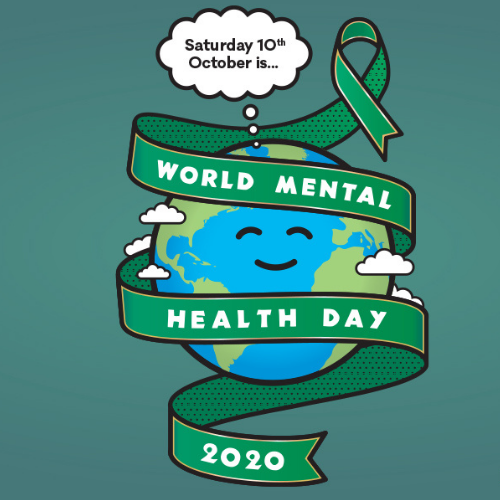They gave insight into their jobs and how their roles have changed in response to this global pandemic; discussed ways to stay positive; and shared their ideas for potential areas for further mental health research.
Myles posed a question about potential areas of research for young people’s mental health more broadly. He asked: ‘What are the things that you think researchers actively working in this area should be focusing on?’, ‘What do we not know enough about?’, ‘What do you think we need to pay more attention to?’, ‘What are the big drivers of student mental health and wellbeing?’.
Here’s what Ruth and Olivier had to say:
Olivier: “I would be interested to know how many fewer students are going to be impacted by the worst COVID-19 symptoms, than by severe long-term and overarching mental health problems? And, if according to a pre COVID statistics - 83% of British adults feel overwhelmed by stress - how is it reasonable to expect us to cope with such sudden and constant overhauling of our lives and routine? [Young people] are begging for stability.”
He continued: “And I'd be interested in research showing how these dramatic and often confusing announcements and public health guidelines can cause dismay and distortion of the student's wellbeing.”
Ruth said: “I think we need to know more about how COVID-19 impacts how people access mental health care. If we don't know what people want to access, or how people's access is changing, then the services are just going to sort of stay back in the past. I really don't think we can actually afford that.
“I'm also genuinely interested to know about what students want to access, what they think helps them, and what different types of support impacts different people in different ways. What sort is the most beneficial? I know, the University has like a lot of kind of like online app support, I'd be really interested in knowing: Do students actually engaged with that? And does that stuff actually improve their mental health? We don't really want the University to be putting resources into areas, which, perhaps there's not much high student uptake, or perhaps it doesn't really work for students.”
The Elizabeth Blackwell Institute is committed to finding answers to important questions like these. We are pleased to share two new projects looking at student mental health at Bristol. Led by Bruce Hood, a new project will undertake an evaluation of the University of Bristol’s ‘Online 'Science of Happiness' course on student mental wellbeing’; and Felicity Sedgewick’s project is looking at the impact of COVID-19 on undergraduate students. Both of these new areas of research have been jointly funded by the Institute and Rosetrees Trust.
In 2019 we funded Nicholas Turner’s research: ‘Seeking, accessing and barriers to student support for mental and emotional health problems – improving university services. He
is investing whether the likelihood of students seeking support differs based on certain demographic characteristics. This knowledge is helping us provide the most appropriate and useful support for the emotional wellbeing of the students.
There are lots of questions that need answering: investing in research mental health research imperative.
Listen to the whole conversation between Myles, Ruth and Olivier:
